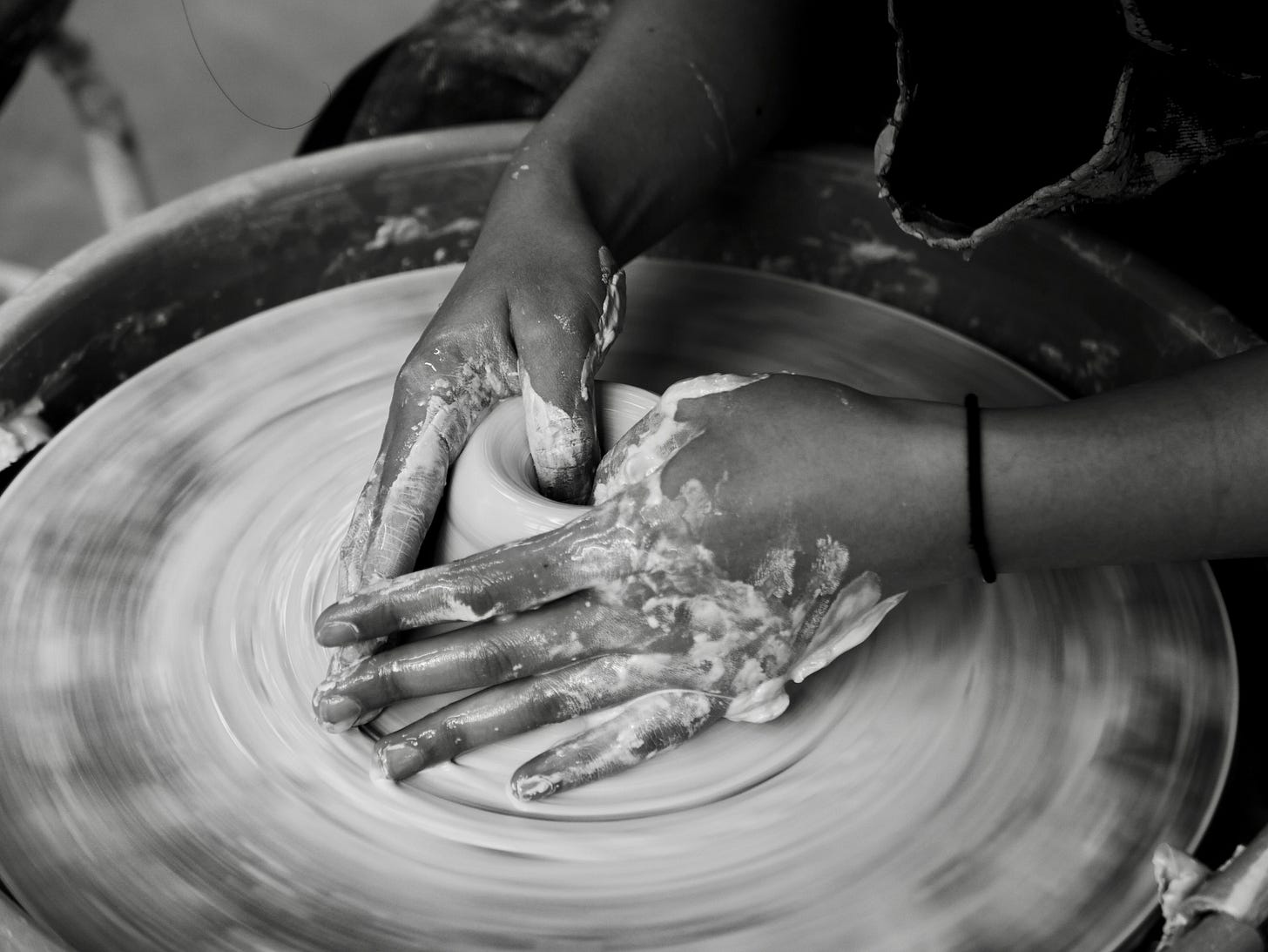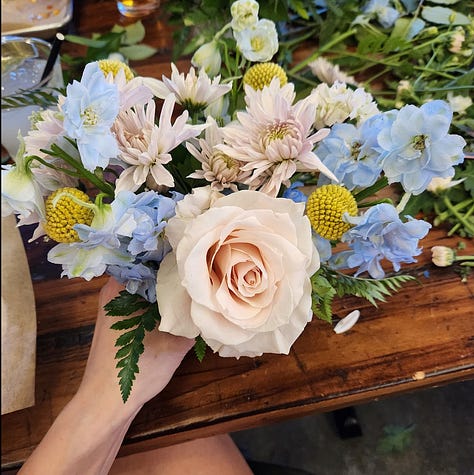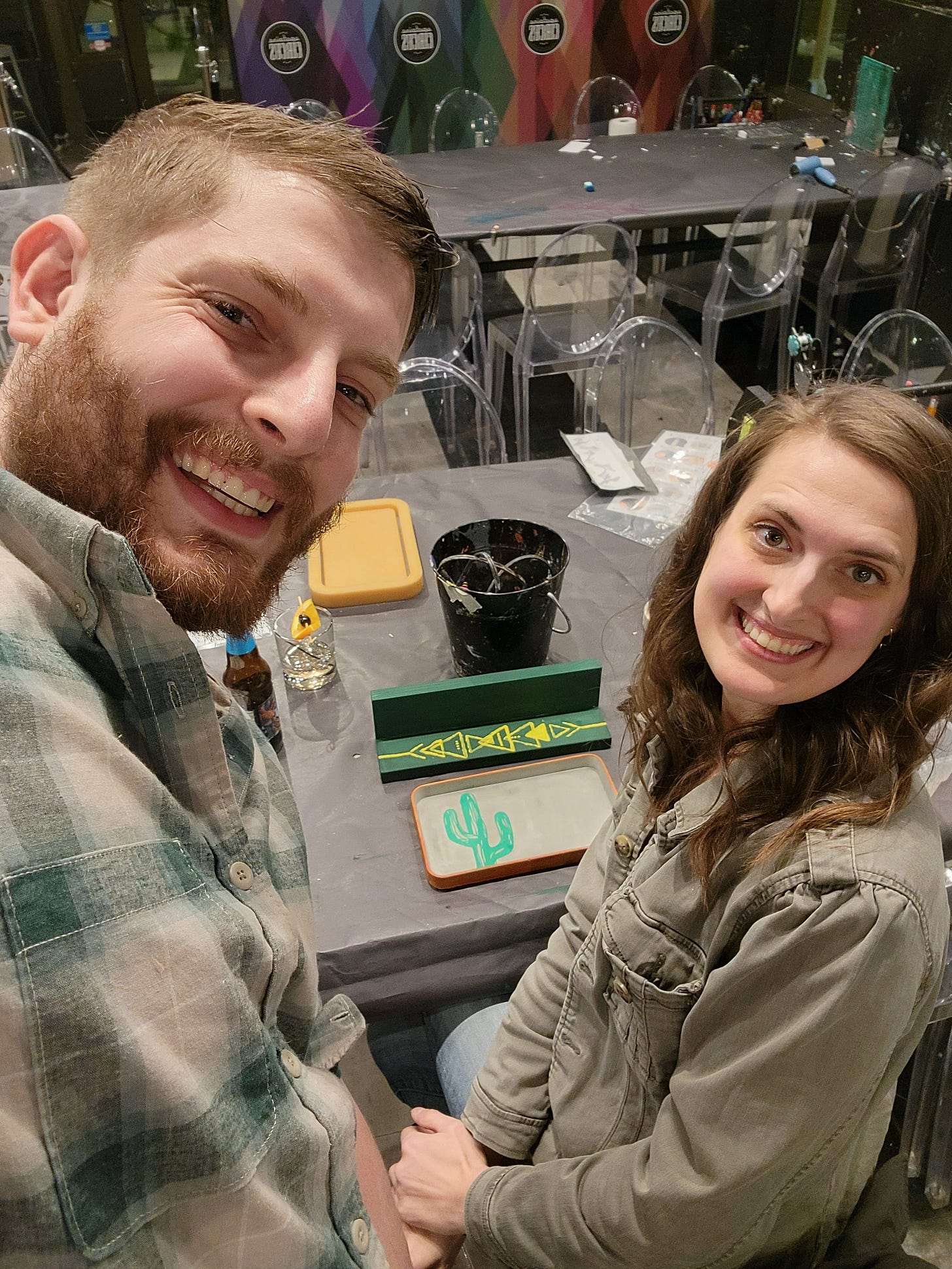When Things Don't Come Easily
How to stomach being the worst at something.
As a child, things never seemed to come as easily to me as they did for others.
Math was an ever-evolving puzzle with more variables added each year, making the equations harder to solve. Science required us to follow instructions during experiments, but my hands failed to repeat the same steps I had just watched.
I didn't have the memory recall to ace history, and despite being in the 99th percentile for height all my life, it didn't afford me the athletic prowess one might expect for gym class.
I was anything but remarkable. But with age, I grew more comfortable with not being the best at anything. I slowly realized it came with a lot less pressure.
I learned to sit quietly in rooms with experts who knew more than I did, and I loved being in the company of those with more experience. But before you assume I'm a glowing picture of humility, know there's a clink in my armor.
I don’t need to be the best, but I cannot stomach being the worst at something.
I’m unsure of its origin, but I remember a key moment when being the worst at something nearly broke my spirit.
In seventh grade, our class project was to create a ceramic piece inspired by Greek mythology. We spent the next two weeks molding clay into a bowl-shaped vase with a small lip and handle.
As I sculpted my vase, I compared its quality and design to those around me.
Halfway through the unit, I could see I was days behind most of the other students.
Picking up the pace, I worked for the next week on getting the handle just right. I'd roll the clay in my hands, shape it to a desired thickness, and attempt to smooth the fingerprint-indented creases—but the handle never looked quite right.
I did this dozens of times while my classmates moved on to painting their vases.
One day, I went to the teacher in search of guidance. Maybe a pointer or two could help me get back on track.
I put my vase and vulnerability in her hands, and she crushed them both.
"Class, listen up," she said standing up from behind her desk, projecting loudly across the room. "This is an example of what not to do."
Then she inspected my vase in closer detail before turning her attention toward me.
"You'll only receive a passing grade if you start over, but you don't have the time. I suggest doing what you can to salvage what’s here."
As I walked back to my seat, my shoulders already hunched in defeat, she pierced me with four little words:
"You're not an artist."
It wasn't the first time my art or work had been critiqued, and I never dreamed of becoming an artist, but her words still struck me with a blow.
For the rest of seventh grade, I walked shamefully into art class. I'd had a sinking feeling I was the least talented in the class, but with her public proclamation, it felt like my insides were turned outside.
Now everyone could see I was a girl who masked her lack of talent with tireless effort.

The same vase sits behind a pane of glass in my mom's hutch cabinet.
I’ve asked her to give it to me several times—with the full intention of breaking it into pieces and hiding the evidence—but she says she’ll hold onto it in case I change my mind later.
She assumes it’s my passion for minimalism talking, a sneaky way to get rid of any relic of my youth that I deem unnecessary right now. She thinks one day I’ll regret it.
But how do I tell her it goes deeper than that?
Years ago, a close friend’s newfound love for ceramics had pulled her from the depths of burnout and despair.
Her eyes danced as the stories spilled out of her, tales of the many treasures she’d crafted on the pottery wheel.
Not sensing my discomfort, she asked if I might join her someday. It was a simple invitation, but I had encountered the pain of my incompetence before. I didn't think I could do it again.
While my tenuous relationship with ceramics remains unchanged, I became somewhat reacquainted with it during a surprise date night.
Earlier this year, to celebrate our dating and engagement proposal anniversary—both conveniently land on February 15th—Evan took me to Upstairs Circus in downtown Minneapolis. With a tagline like “Where DIY Workshop Meets Bar,” I knew this setting meant I’d be creating art in public again.
As Evan ordered our cocktails and excitedly skimmed the “project menu”—a list of DIY art projects you can build in an hour or two—my nerves began to set in. With his encouragement, I selected a concrete-style jewelry tray made of clay.
I know this should’ve been an opportunity for us to create handmade trinkets for our home, but I didn’t see it that way. I was terrified I was going to screw it up. I second-guessed my ability to correctly read the instructions. I set multiple timers on my phone to ensure I stayed on task.
I even looked to Evan for constant reassurance as if he knew the right way to complete the project. He knew even less than I did as he turned back to finish his own: a Packer-themed magnetic key holder for our garage.
As the night came to a close, I finished coloring the stenciled cactus outline on my tray—inspired by my Arizonian roots—and hurriedly painted the sides in a terracotta hue. Then we took a quick selfie photo with our projects before heading home.
When we arrived home, Evan promptly nailed his key holder to the wall while I zeroed in on my tray’s obvious flaw.
All of the painted sides were blended well—except for one rogue stroke. And, as luck would have it, the brush stroke was right in the front of my tray.
Evan reassured me it still turned out beautifully, but all I could see was my rushed mistake. (I promise I’m usually much more fun on date nights!)
When I tried to hide the tray behind books the next day, he relocated it to our entryway, making it the first thing guests saw when they entered our home.
The tray and its key holder counterpart are still displayed in our home.
I pass by them every day—warts and all—and I can’t believe how much power I gave it. I let a kind gesture—like my husband planning a thoughtful anniversary date—turn into a chance to prove my worth in hopes my art teacher had it all wrong.
I don’t know if we can ever silence our doubts until they are imperceptible, but we can try to quiet them so they’re not louder than the voices of love and compassion.
I’ve had more practice with this since then.
I practiced when my husband secretly signed us up for a volleyball team as I fretted over my complete lack of experience. Or when I was limited in what floral arrangement I could create after unexpectedly slicing my finger open an hour before the workshop. Or when I made an easier dish for a foodie-themed book club knowing fully well it would be the most lackluster thing there.
And I survived it.
As I make new friends and take on new challenges, I’m introduced to a whole new world of things I’m the worst at. And I’ve learned the only thing worse than being the worst at something is opting out because of it.



A moment to reflect
Can you remember a time when you were the worst at something? How did you overcome that feeling and create a more affirming experience?




I'm horrendous with watercolor! Still not great at it which is why I don't pick it up often haha, but it's taught me that it's okay to make something for the sake of beauty itself. Profound as always, Kayla 🥰
Kayla, I loved reading this post! I’m actually drafting a post right now about how baking sourdough has helped me with my fear of not being good at something right away. Those childhood “failures” really stick with you though—for me, it was being the worst at the Presidential Fitness Test 😅